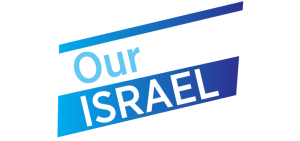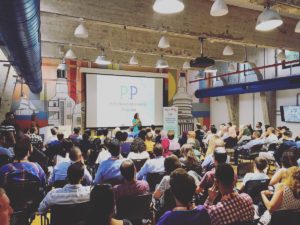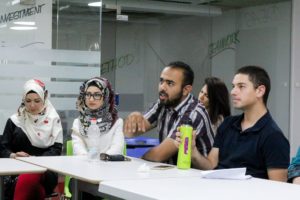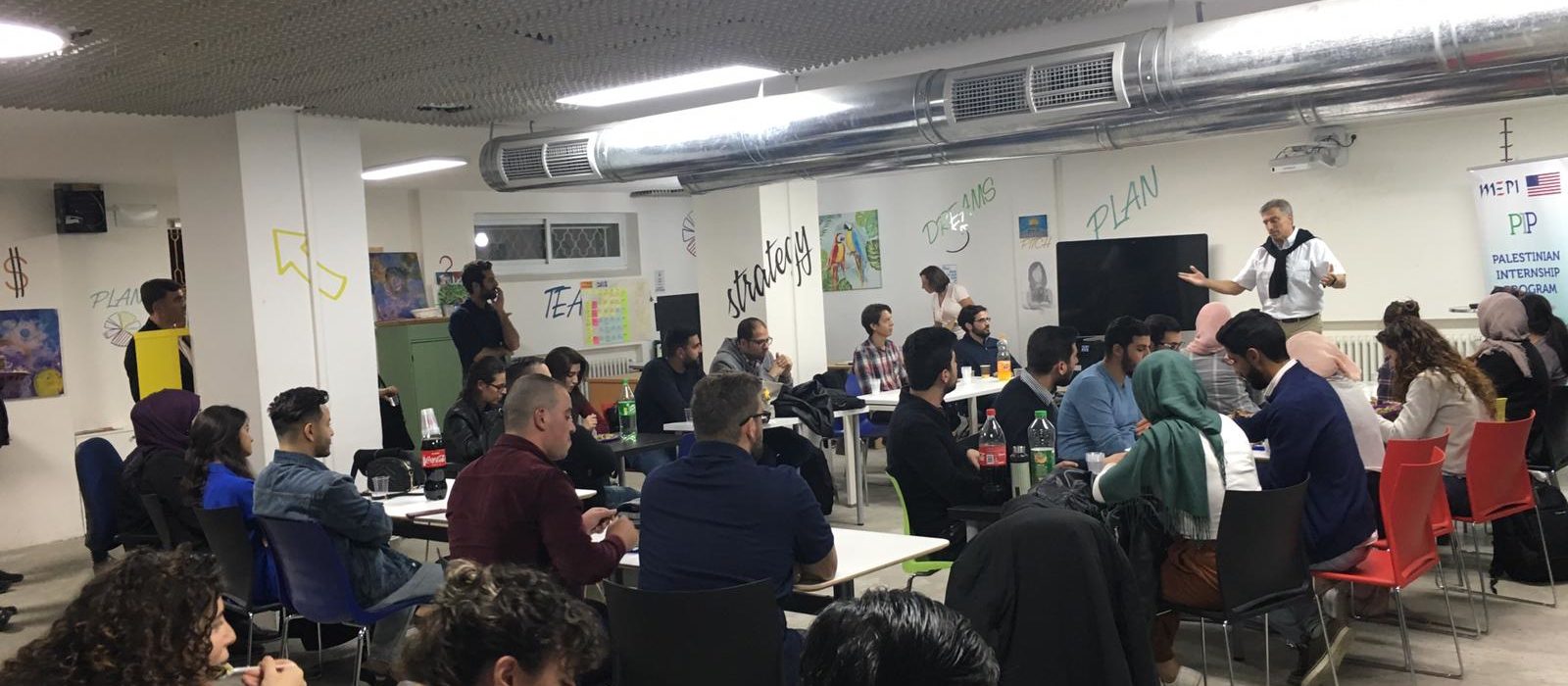- About Us
- Policy Center
- Learn
- Press Room
- Blog
- Get Involved
- Donate
- Donate to J Street Online
- Make a Gift in Someone’s Honor or Memory
- Make a Monthly Gift
- Tax-Deductible Donations
- Giving by mail

J Street’s “Our Israel” project spotlights the amazing Israeli groups who share our progressive vision for Israel, and who are helping build a society underpinned by the founding values of democracy, self-determination and equality which are enshrined in Israel’s Declaration of Independence.

“We’re looking at how we can help young people reach their potential. And how can we help young people make the most of the opportunities that are available for them,” says Anna Gol. As the Executive Director of the Palestinian Internship Program, Gol spends much of her time working to open doors for Palestinians in tech.
“We’re not ignoring the conflict. We’re working within the conflict,” she says.
In recent years Israel has earned the nickname of “Startup Nation” – and for a good reason. Israel has become a hub for technology and innovation, leading the world in the most start-ups per capita.
Yet there are mounting challenges for these sectors. “Every day, there’s a new start-up opening its doors,” explains Gol. “And quality talent in Israel is increasingly hard to come by,” she continues.
The Palestinian Internship Program works to connect Palestinians in technology to companies in Israel and beyond seeking talent. It’s a mutually beneficial relationship. By placing participants in roles where they will contribute to the Israeli tech sector, they can ultimately take what they learned back into the Palestinian ecosystem – creating their own “startup nation.”
With a shortage of highly skilled tech workers, many Israeli companies have begun outsourcing work. “What we do need is people. Israel is hungry for talent. We’ve exhausted the resources of mainstream Israel,” said Prime Minister Bennett just earlier this year. Yet while companies outsource talent to Croatia, Ukraine and India, many fail to see talent in their own backyards – in Palestinians.
The Palestinian Internship Program aims to empower Palestinian professionals in developing and building their careers, and establishing themselves as business leaders, thereby stimulating innovation, investment, and opportunity in the Palestinian tech ecosystem.
“Part of our goal is to make it very easy logistically for companies in Israel to hire Palestinian talent,” explains Gol.
High Standards of Talent
As it stands, it’s incredibly difficult for Palestinians to gain entry to the tech sector. Even with a worker shortage, the standard for quality talent in the Israeli tech sector is extremely high. Gol explains that most highly skilled tech workers in Israel come from an IDF unit called Shemoneh-Matayim – a top intelligence unit. Often described as this Israeli equivalent to an Ivy League education, this level of experience comes before one even enters university.
As a result of the ongoing occupation, universities in Gaza and the West Bank are often less equipped with the resources needed to provide students with strong practical skills in tech, as these institutions have long faced challenges in keeping up with the rapidly changing technology required to produce a high-skilled workforce.
“Palestinian candidates have a very strong theoretical background, as their classes go in-depth with theory, but they have very limited exposure to practical skill development. They don’t have the same resources. They don’t have the high tech lab that Israeli universities would have,” says Gol.

Bureaucracy and Political Challenges
If a candidate from the West Bank wants to be on-site in the office every day for an Israeli company, they need to have permission to enter Israel.
Those seeking work in technology across the Green Line need to have a form of documentation and permission to enter Israel, and they cannot stay in Israel overnight. In addition, the permits required are hard to come by and can expire quickly. Candidates also cannot apply for the permits on their own – instead, the company hiring them or someone within Israel must do it.
The Israeli government recently approved a small number of tech work permits for Palestinians. While they only approved permits for Palestinian workers in construction and agriculture in the past, the labor shortage has forced the government to make a change. However, the approval was for only 500 permits over three years – very few compared to the high demand.

How the Palestinian Internship Program Steps In
What differentiates the Palestinian Internship Program is that they remove the barriers to hiring Palestinians by advising on the best employment structure, taking care of all the red tape, and arranging permits for entry into Israel.
In this system, all that companies have to do is decide to hire the candidates, and the Palestinian Internship Program takes care of the rest.
Because of this, candidates can complete their placements in Israel on-site at the company, developing relationships face to face with their Israeli colleagues. “That’s where we play the biggest role and have the biggest impact,” says Gol. “We’re creating a different dynamic. Palestinians, through their placements, don’t feel like they’re just working on a project, and when that project is done, they’re disposable. They are a part of the company and a part of the team.” As a result, the interns can integrate themselves as team members, experience the company as regular employees, and hopefully, get their foot in the door to be employed long-term.
Stimulating the Palestinian Ecosystem
The program’s ultimate goal is to stimulate the growth of the Palestinian tech ecosystem. Gol explains that they don’t create leaders — they simply provide resources and open doors for the leaders that already exist.
They even have alumni who have started their own companies – from an online platform for personal training in Arabic, a new construction initiative in the Occupied Territory, and innovative robotic arm technology. Gol says, “Our alumni are pushing the cycle forward. They are providing more jobs and opportunities directly in the Palestinian ecosystem and passing down the skills they gained through their internships to their employees.”
These alumnus have also gone on to hire other participants of the internship program – creating a full circle.
They identify as a coexistence and economic cooperation organization. Before coming to the Palestinian Internship Program, less than a quarter of participants felt comfortable traveling within Israel, or engaging with Israelis. Following the program, nearly eighty percent felt comfortable.
“If you want to talk about coexistence and look into the future, it’s easier to do that when you’re looking at common goals. People on both sides of the border are interested in establishing secure futures for themselves,” explains Gol. “So how do you do that? You do that through partnership. You do that through building together.”